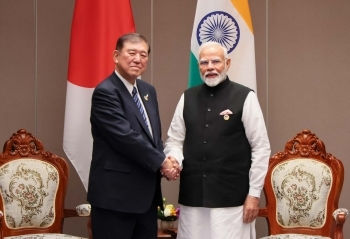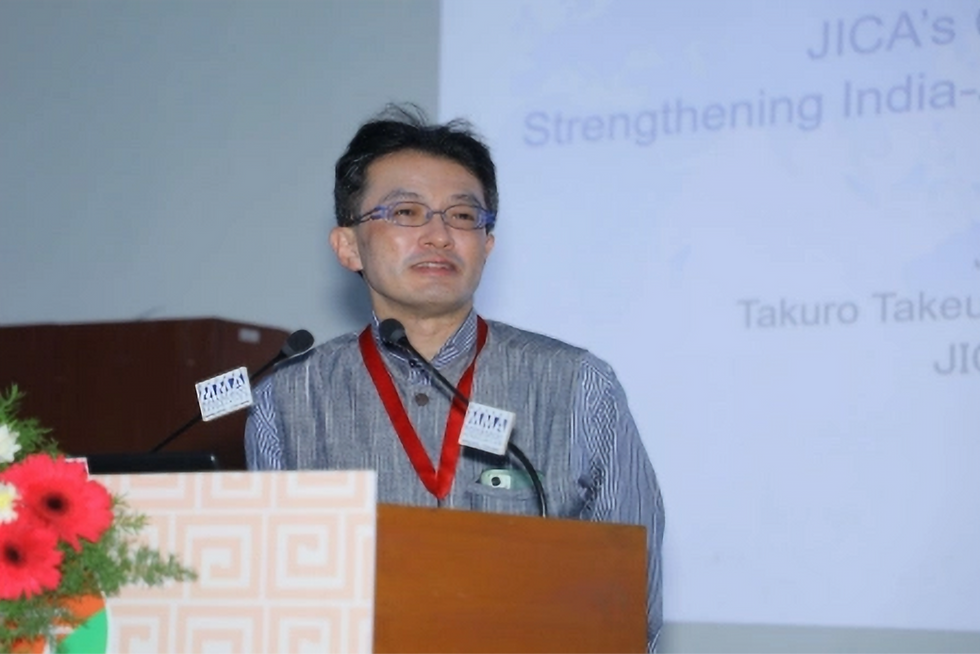India-Japan JCM Agreement: A New Era of Climate Cooperation and Decarbonization
- peeush srivastava
- Aug 30, 2025
- 2 min read
New Delhi/Tokyo, August 2025.
On August 7, 2025, ONO Keiichi, Ambassador of Japan to India, and Tanmay Kumar, Secretary, Ministry of Environment, Forest, and Climate Change of India, signed a landmark Memorandum of Cooperation (MoC) between the Government of Japan and the Government of India on the Joint Crediting Mechanism (JCM).

The JCM, consistent with Article 6 of the Paris Agreement, enables both governments and private companies to collaborate on the technical and financial implementation of low-carbon and decarbonization projects, while sharing the resulting greenhouse gas (GHG) reductions based on contributions from each country.
This marks India’s first bilateral cooperation mechanism under the Paris Agreement, while India becomes the 31st country to partner with Japan on JCM initiatives.
India–Japan Climate Partnership: Driving Decarbonization with Technology
The Government of India has already outlined priority areas for international cooperation in decarbonization, including:
Compressed Biogas (CBG)
Green Hydrogen and Green Ammonia
Decarbonization of high-emission industries
Carbon Capture and Storage (CCS)
These are sectors where Japanese companies bring advanced expertise and technology, positioning the JCM as a catalyst for innovation and green growth in India.
By leveraging JCM’s market mechanisms, both nations aim to attract significant private capital investment in decarbonization projects, creating a model framework for sustainable development that balances rapid economic growth with climate action.

Key Highlights from the India–Japan Economic Forum
On August 29, 2025, during the India-Japan Economic Forum, ASAO Keiichiro, Minister of the Environment of Japan, emphasized that the JCM will be a central tool for promoting climate change countermeasures and deploying cutting-edge decarbonization technologies through bilateral cooperation.
On the same day, the Japan-India Joint Statement and the Joint Vision for the Next Decade, released by the Prime Ministers of both countries, welcomed the signing of the JCM agreement and reaffirmed their commitment to deepen climate cooperation.
In a high-level ceremony, Minister ASAO Keiichiro and Sibi George, Ambassador of India to Japan, exchanged the signed MoC documents in the presence of the two leaders.
JCM: A Model for Global Climate Cooperation
Going forward, Japan’s Ministry of the Environment, along with the Ministry of Economy, Trade and Industry (METI), the Ministry of Foreign Affairs (MOFA), and other agencies, will work closely with India and the JCM Implementation Agency (JCMA) to ensure smooth operation.
Since its establishment, the JCM has supported over 270 projects worldwide across sectors such as renewable energy, waste management, and energy efficiency. With India’s inclusion, the mechanism will scale up efforts to:
Accelerate renewable energy deployment in India
Support India’s Net Zero and E20 biofuel goals
Promote technology transfer and private investment
Address global climate challenges through bilateral innovation
The Global Environment Centre Foundation (GEC) has been designated as the official JCM Implementation Agency (JCMA), in accordance with Japan’s revised Act on Promotion of Global Warming.
Conclusion
The signing of the Japan–India JCM Memorandum of Cooperation is a landmark moment in bilateral climate diplomacy. By combining India’s rapid economic growth trajectory with Japan’s technological expertise in clean energy, the initiative sets a precedent for sustainable development, carbon neutrality, and global climate leadership.
The partnership underscores the shared vision of both countries to not only meet Paris Agreement goals but also to act as regional and global leaders in decarbonization.





%20(2)_edited.jpg)





Comments